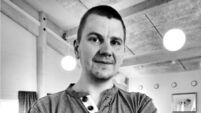Family of paralysed woman launch fund campaign
Catherine O’Leary’s family said they will also examine other avenues such as the National Treatment Purchase Fund in a desperate attempt to get her the urgent help she needs.
The 31-year-old mother of one from Ballincollig, Co Cork, is paralysed from the neck down after two strokes following a risky brain operation to remove a tumour last February.













